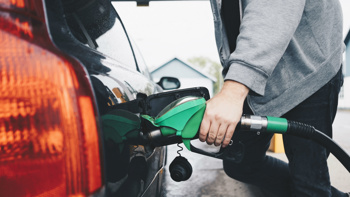There 20,989 new community Covid cases and seven new deaths today.
That is the highest number of daily Covid-related deaths New Zealand has seen since the pandemic came to the country in 2020. Five of the deaths are in Auckland, one is in Waikato and one is in the Southern region.
There are 856 people in hospital, including 20 in intensive care. Ten of those in ICU are in Auckland.
Long Covid was a reason to remain vigilant, said Northern Region Health Coordination Centre's clinical leads Dr Andrew Old.
Getting Covid is not inevitable and Old urged people to keep up with their health measures, including mask use.
Yesterday, there were 208,734 active cases in New Zealand, of which half are in the Auckland region which remains the epicentre of the outbreak to date. There were 21,015 new community cases and 773 people in hospital. Sixteen people were in ICU or HDU.
The Ministry of Health yesterday said there were now more people in hospital with Covid-19 than at any other point over the last two years.
Isolation cut down
From midnight tonight, the isolation period for Covid-19 cases and their household contacts will be reduced from 10 to seven days.
In announcing the change Covid Response Minister Chris Hipkins said as case numbers increased, larger numbers of people needed to isolate and the reduced isolation time was because of high case numbers and wider impacts.
"There needs to be a balance between effectively controlling the outbreak and the flow-on effect for business and essential goods and services such as transport and food supply," he said.
"The most up-to-date public health advice is that there is a decline in infectiousness of Omicron over time, and that in most cases transmission occurs within seven days.
"Seven days isolation will break the vast majority of potential transmissions, while ensuring people can get back to work quicker and therefore reducing the impact on business operations."
Household contacts would need to have a rapid antigen test at day 3 and day 7 of their isolation period.
If they become symptomatic they should also get a test, and if the result was positive, they would need to reset their week-long isolation period from that point.
Hospitalisations lagged behind
Canterbury University Professor Michael Plank said with 7234 cases in Auckland reported yesterday the region may have reached its peak as the rolling average of cases per 100,000 people had fallen from almost 700 to just over 600.
Plank said it was likely Auckland had hit peak cases but as hospitalisations lagged behind it was possible the city's hospital figures could continue to increase or remain flat for a while yet.
"It could be another week or two before we start to see them come down."
Nationally, modelling indicated the most likely scenario was hospitalisations peaking at somewhere around 1000, he said. "It still looks roughly on trajectory for that as a national peak."
Otago University epidemiologist Professor Michael Baker also said looking at the latest numbers, it appeared cases in Auckland had peaked.
The virus outbreak continues to cause disruption across Auckland with Auckland Transport confirming it has cancelled about 2000 services a day because of staff shortages.
About 400 employees were unable to work because they either had Covid-19 or were household contacts.
Today Fullers360 cancelled over 70 ferry sailings across Auckland's harbour due to too many staff having Covid.
Take your Radio, Podcasts and Music with you









